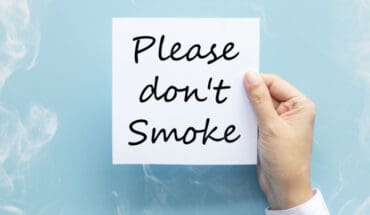Doctors and healthcare workers need to accept that they are at risk of being sued or having a complaint made against them. It is one of the downsides of being a professional. As a barrister, I accept this risk every time I give legal advice. There are lawyers who specialise in suing other lawyers, and this is no bad thing for the profession and the public.
That said, it is particularly stressful for doctors who may feel that they are unfairly blamed for causing harm, even when that harm occurred through sheer bad luck.
While the risk of complaint can never be totally eliminated, it can be reduced.
Most obviously, doctors should practise good medicine. In law, the standard expected is generally that of a reasonably competent doctor.
Doctors should keep good notes to prove, if necessary, that they practised good medicine. Much of my day is spent trawling through notes with a fine tooth comb to establish blame or exonerate a client. Neat, detailed notes reflect well on the medical team. Meagre, illegible scribbles reflect poorly.
“Keep good notes” is a message which, if followed by doctors, will put out of business many lawyers who specialise in clinical negligence. A single word, or a single omission, can make the difference between a case against a doctor never getting off the ground and one that is likely to succeed.
Many cases ultimately turn on the facts, on what was said in the course of an appointment, for example.
When it is the word of the patient or relative against a doctor, the notes can determine the outcome. When asked “how do you know you told the patient about X”, the answer “because I wrote it down at the time in the notes, as you can see here” is better than “because I usually tell patients about X”.
Good verbal communication can also lower the chances of complaint or litigation. Good communication is needed before, during (if the patient is awake) and after the intervention, especially if things have not gone according to plan. I find that relatives and patients often feel they have not been kept informed by the medical team. This can lead them to wonder if things have gone wrong as a result of incompetence. They can suspect a cover-up.
There is much to learn from cases that are litigated, even those that are settled. It would be helpful if lawyers acting for the NHS did more to share their lessons with front line staff. The Medical Protection Society does this in print with their excellent Casebook journal, but a good lecture – delivered on site – would probably have an even greater effect. In matters legal, as well as medical, prevention is better than cure.
If my idea of hospital-based clinical ethicists ever takes hold in this country, that would be a key part of their function: to take lessons learnt from complaints and litigation into the clinical front line.
I now deal with a growing number of cases involving patients who claimed they did not validly consent to a procedure. This increase in consent cases follows the Supreme Court’s judgment in Montgomery. The case has established that a doctor must take ‘reasonable care to ensure that the patient is aware of any material risks involved in any recommended treatment, and of any reasonable alternative or variant treatments.’ If you are a practising doctor and have never heard of Montgomery, stop reading this and find out what the judgment means for you. It is freely available online.
In conclusion, doctors must be compassionate but they must also have the skin of a rhinoceros. This means accepting that complaints and litigation are an occupational hazard that can never be eliminated. To reduce the risk, know your medicine, know the limits of your knowledge, know when to seek help, learn from your mistakes, and learn from the mistakes of others. But constant worry about litigation is not conducive to a happy life. A healthier approach is that described by Sir William Osler, probably the greatest doctor of the 20th century. One of his ideals was, simply, “to do the day’s work well and not to bother about tomorrow”.
Dr Daniel Sokol is a barrister, medical ethicist, and columnist for the British Medical Journal. His publications, including those on the landmark Montgomery case, are available on his website www.medicalethicist.net. He gives regular talks to clinicians on medical ethics and law.
- COVID-19 Intensive Care Triage Protocol - 11th April 2020
- Remedial Ethics For Clinicians - 8th December 2019
- Doctors, Status and Social Media - 6th June 2019






